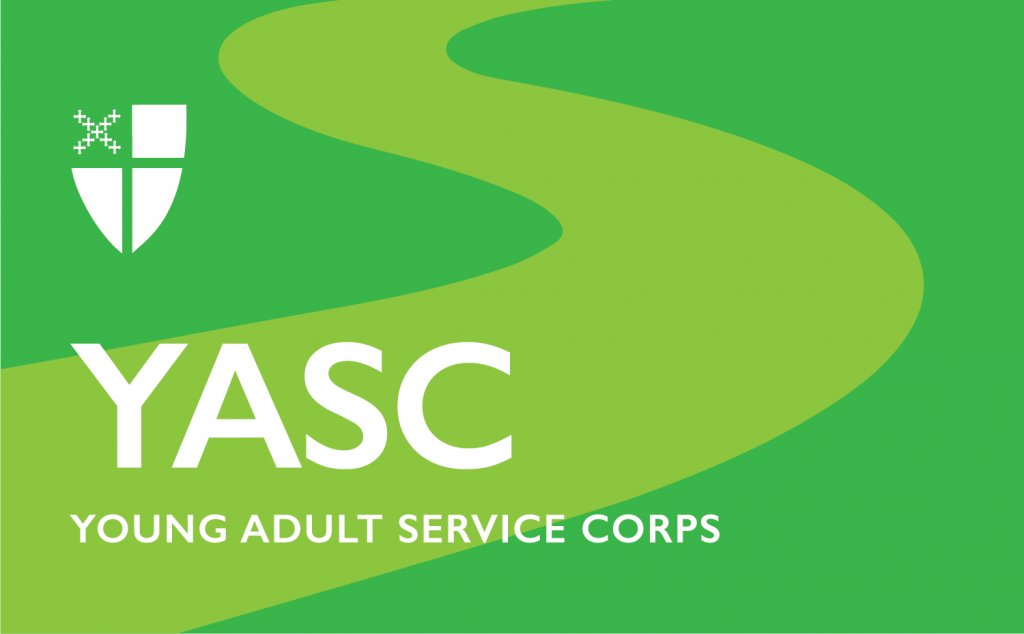Episcopal missionaries nurture global partnerships, deepen Communion
As The Episcopal Church prepares to observe World Mission Sunday on Feb. 15, the following article looks at some of the treasures of its missionary program. The purpose of World Mission Sunday is to focus on the global impact of the Baptismal Covenant’s call to “seek and serve Christ in all persons” (Book of Common Prayer, p. 305), and to raise awareness of the many ways in which The Episcopal Church participates in God’s mission around the world. The recently released Report to the Church details the work of the Domestic and Foreign Missionary Society in coordinating and supporting Episcopal Church missionaries serving throughout the world.
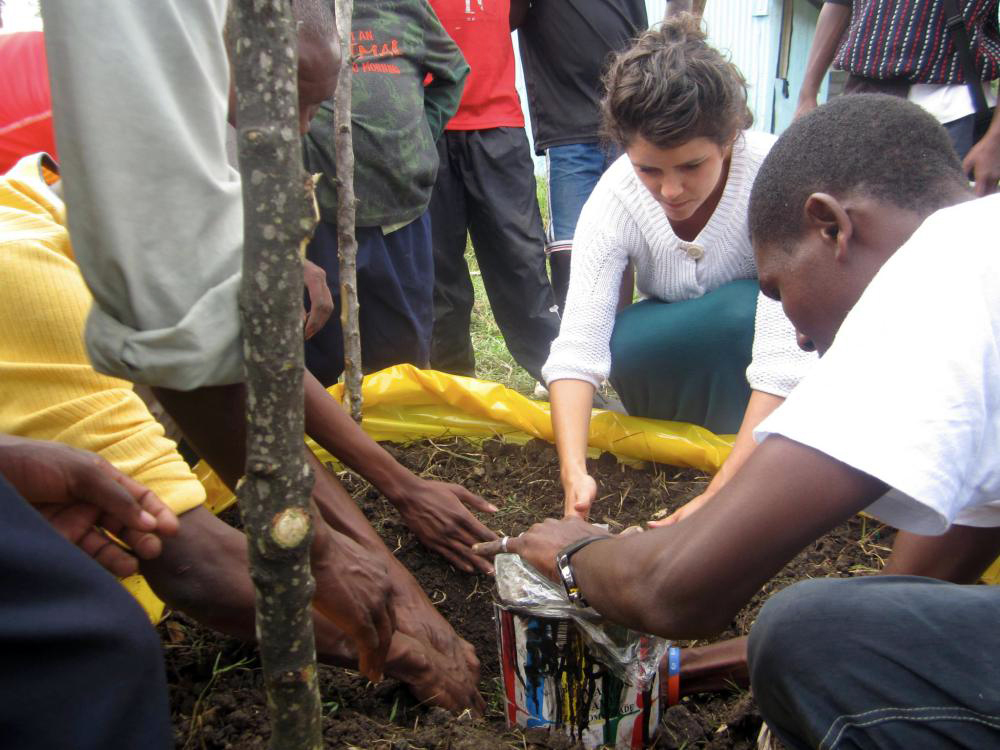
Several years of serving as an Episcopal Church missionary taught Natalie Finstad that healing and change only really happen in the context of community and that “we cannot begin to recognize who we are in God without the presence of community.”
Relationships with one another “invite us into a deeper understanding of who we are,” she told ENS shortly after she’d returned to the U.S. after four years living in Kenya, where she established the Tatua Kenya program to develop leaders and community organizers in East Africa to become agents of change.
And for Finstad, 30, being a missionary is all about deepening partnerships, “being in right relationships … building up the Kingdom of God.”
Finstad is one of thousands of Episcopal missionaries who over several decades have chosen to embrace a life-changing experience of walking alongside a community often far removed – both geographically and culturally – from their own.
Although she has left Kenya, her missionary work lives on through Tatua Kenya, which is now managed locally by community leaders who are committed to a sustainable future.
Crossing cultural boundaries, building partnerships, and engaging God’s mission locally and globally are at the very heart of The Episcopal Church’s missionary program, which “offers individuals an opportunity to be agents of Jesus in the world. Then through our telling of the stories, it offers other people an opportunity to see how they can be engaged,” Finstad said.
“We need opportunities to get involved. The program opened avenues for me to tell the story … and to build beautiful relationships,” she added. “I can’t even say who I am without this experience in Kenya. I could not even begin to separate myself from what I’ve learned there. The rest of my life will be a display of gratitude for that experience – I am confident of that.”
The Rev. David Copley, mission personnel officer for the Domestic and Foreign Missionary Society, says it is difficult “to quantify the success of our missionaries because the basic premise is always to strengthen relationships with our partners.” But, he added, some of the greatest success stories can be found “in the programs that continue when the missionary presence ends.”
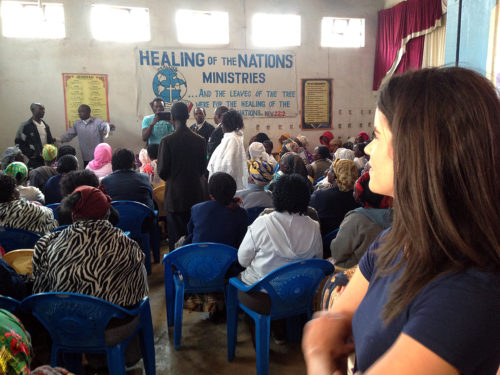
Through Tatua Kenya, for example, Finstad seized the opportunity to build effective and sustainable solutions to poverty in Kenya by developing local leadership and encouraging community participation, rather than simply turning to overseas sources of funding. The project now offers a two-year fellowship for local leaders to learn community organizing skills and use those skills to launch locally run initiatives that improve livelihoods and reduce dependency within their communities.
“We rarely see missionaries as being in a long-term placement for their whole career,” Copley said, acknowledging the importance of programs that empower the local community. “This can be seen also with the ministry of the Rev. Zach Drennen, who began with a program to have scholarships for high school students in Kenya with funding mostly from the U.S. His program now receives 50 percent of its funds from local sources and he is looking to hire a new local director for the program and to transition out of his role there.”
The Episcopal Church’s missionary program, which is administered by the Domestic and Foreign Missionary Society, currently sponsors and supports 47 adult missionaries who serve in various roles, such as doctors, nurses, teachers, accountants, agriculturalists, computer technicians, administrators, theologians, and communicators.
Missionaries are lay and ordained, young and old, and serve as “representatives of our community who cross cultural boundaries to participate in the mission of God that our brothers and sisters in other parts of the Anglican Communion feel called to respond to,” says Copley.
Over the past two years, the church’s Young Adult Service Corps program has taken on a new lease of life, with 45 missionaries aged 21-30 serving in a broad diversity of roles and contexts.
The 2013-2015 budget passed by General Convention allotted $1 million to make “a missionary experience available to all Episcopal young people through such programs as the Young Adult Service Corps program for a gap year experience between high school and college or work.”
That allocation is part of the way in which the Domestic and Foreign Missionary Society is responding to the third Mark of Mission, which calls on members of the Anglican Communion to respond to human need in loving service.
The recently released Report to the Church details the budget-supported work of the Domestic and Foreign Missionary Society to date in the current triennium, including the Mark Three work on pages 44-55.
Convention structured the current triennial budget around the Communion’s Five Marks of Mission and provided significant unallocated sums for new work targeted around each Mark of Mission. The intention was that the resulting work would be done in new, collaborative partnerships with dioceses, congregations and other Episcopal organizations. The Domestic and Foreign Missionary Society has provided seed money and/or matching grants as well as staff support and expertise for the new work.
The 2013 group of 28 missionaries was the largest number of YASC volunteers ever, including three returnees and two representing the church’s Province IX (dioceses in the Caribbean, Central and South America) for the first time in the program.
For the upcoming year, a record-breaking 42 young adults representing 25 dioceses, one quarter of whom are people of color, have filed applications to serve in the program.
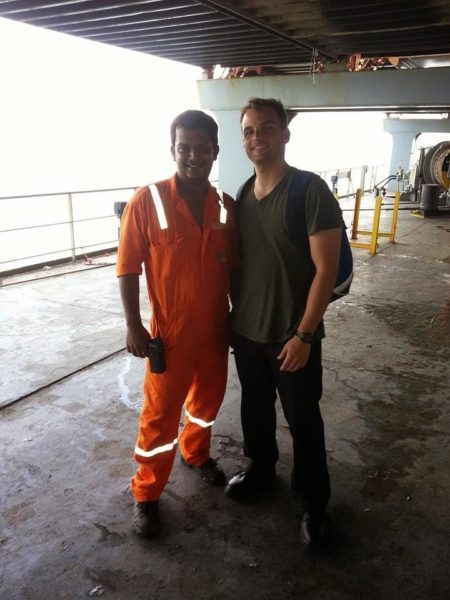
“When I first signed up to do YASC, I had no idea how much it would change my life,” said Will Bryant from the Diocese of Western North Carolina, who spent his first year as a YASC missionary working with the Mission to Seafarers in Hong Kong, and is currently serving a second year at the Joel Nafuma Refugee Centre in Rome.
“In my two years with the program I have grown spiritually and mentally in ways that I would have never imagined,” he told ENS.
Bryant said that his experiences with the YASC program have helped him to realize that “whether you are an Afghani refugee, a Filipino seafarer or an American missionary, we are all seeking the same thing: a safe, comfortable place to call home, employment to provide for our families and community, and a deeper connection with our creator. … Now, after living in two completely different countries and continents, I can safely say that I have become more confident in my faith and in my abilities as a human being. I don’t exactly know what the future holds after my time in YASC, but I do know that whatever that may be, I will be well-prepared because of the lessons I have learned as a missionary.”
Through the missionary program, several relationships with other Anglican provinces have continued to deepen and flourish.
The partnership between The Episcopal Church and the Anglican Church of Southern Africa, for example, goes back several decades. Long-term adult missionary Jenny McConnachie has devoted her life to the poorest of the poor. She and her late husband Chris moved from North Carolina to South Africa’s Eastern Cape in the early 1980s. Together, they set up African Medical Mission, strengthening the most vulnerable communities through their commitment and compassionate service.
Over the past decade that partnership has seen several YASCers heading to South Africa to serve in educational, healthcare, community development and administrative roles.
Copley received a letter from Archbishop of Cape Town Thabo Makgoba saying how much the YASC program benefits the Anglican Church of Southern Africa “and how he sees the young adults growing in their ministry, highlighting the mutuality of mission.”
Makgoba, speaking with Episcopal News Service, said that the young adult missionaries are “all characterized by one key value: they are selfless in their giving of their energy and expertise. They show the critical value of Ubuntu,” a Zulu/Xhosa word that describes human identity as being formed through community and encompassing a sense of caring, sharing and being in harmony with all of creation.
“My prayer is that this partnership should grow from strength to strength,” Makgoba added. “I hope that those who come to South Africa are so touched by South Africa that they take a part of our humanity. This is an invaluable program as part and parcel of our mission and ministry in Southern Africa. As Christians we need to strive to be anchored in the love of Christ and committed to His mission and ministry and transform societies so that they reflect the love of Christ and they too can be empowered to make Christ known in their own contexts.”
Copley said that the Episcopal Church in the Philippines, which began receiving YASCers in 2012, has also acknowledged the benefits of their presence and has expressed its commitment to continuing the partnership.
Carlin van Schaik of the Diocese of Northwest Texas is currently in her second year in YASC serving with the Episcopal Church in the Philippines. Her 2013-14 YASC year was spent in Seoul with the Anglican Church’s Towards Peace in Korea program, which focuses on humanitarian aid and peace education.
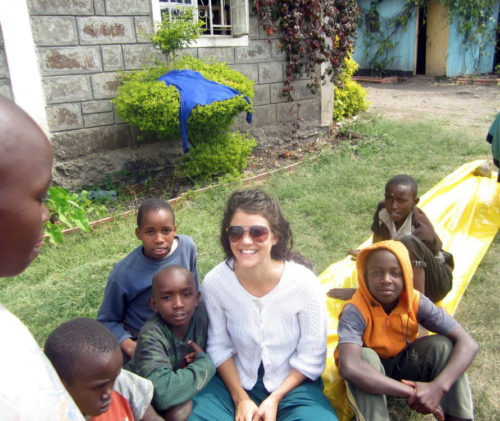
Speaking with ENS just a few months after arriving in South Korea, van Schaik said that the experience had already “widened her world view. I had no idea how American I was until I arrived. I listen a lot more than I used to, and I have a much better sense of the interconnectedness of people. … That’s made a really big difference on how I view the world and consider my own actions now. I want to be able to live much more globally and much less locally than I have before.”
The YASC program is “a chance for you to learn more about yourself, do good work, meet new people, and you don’t have to pay your student loans for a year,” she added. “You keep changing your whole life so the YASC program is a good place to start practicing that. It’s been really educational.”
Copley highlighted a new initiative currently being offered by the mission personnel office to support shorter-term missionaries who can provide specific skills.
For instance, Jim and Mary Higbee and Sue Dauer visited Kenya for just one month in 2014 to provide hands-on teacher training which they will continue to follow up with in the coming years.
Copley’s office also continues to work with Episcopal Church dioceses to strengthen their companion relationships and to support medium-term mission placements of older adults as well as for YASCers.
“I see mission service as providing technical expertise to empower others and also an avenue to strengthen companion relationships through the ministry of presence,” he said.
Jenny Korwan, who served as a YASC missionary from 2012-13 working with Finstad at Tatua Kenya, says she will always consider herself an Episcopal Church missionary. “Society and culture tell you what missionary is, but the mission of the church is really based on relationship and sharing the love of Christ and the love of God through what we do and how we act. Uniting churches and uniting the faith community across cultures is a huge part of what being a missionary is all about.”
For Finstad, who is currently in the discernment process in the Diocese of Massachusetts, her personal faith has always motivated her work, which she said is primarily about building relationships and working towards reconciliation.
But her ministry in Kenya has changed the way she views mission.
“I used to think of mission as something we do or accomplish, but now I am much more concerned with mission being about healing” and relationships.
“It is not our responsibility to heal the world – that is the work of God,” she added. “However, it is our mandate to honor God’s presence in all of creation and to cultivate a mature understanding of what it means to be a child of God. We must invite all our brothers and sisters to join us … in envisioning how we could work towards the Kingdom of God together.”
For further information about the missionary program, contact the Rev. David Copley, director for mission personnel, at dcopley@episcopalchurch.org. For further information about the YASC program, contact Elizabeth Boe, officer for global networking, at Elizabeth Boe.

